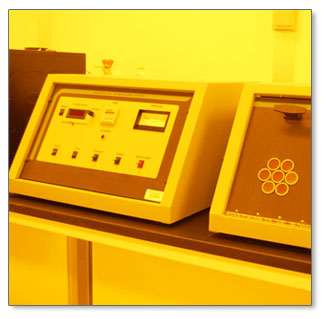
Integrated Nanosystems Research Facility
Anatech LTD Model SP100 Plasma system

![]() View Photo Gallery
View Photo Gallery
A Gas Plasma may form whenever gas is exposed to an electric field. If the field is sufficiently strong, a high percentage of gas atoms will surrender an electron or two and become ionized. The resultant ionized gas and liberated energetic electrons comprise the gas plasma or plasma. The ionized gas atoms have relatively little kinetic energy unless they are accelerated through an electric field. When accelerated, they will bombard a surface with sufficient force to dislodge loosley or tightly bound materials or Etch the surface. Plasma effects the etching processes by momentum transfer of material. The use of reactive gases produces molecular level chemical modifications as well.
Gas Plasma Types: Anisotropic plasma is directional and is induced by electrically controlling ions at some specific energy, or range of energies (see Anatech USA Aluminum Box Systems).
Isotropic plasma is multi-directional and engulf an entire 3-D object within the plasma (see Anatech USA Quartz Barrel ICP Systems).
Gas Plasma processing has several advantages over wet chemical processing. Surface tension phenomena of the liquid are eliminated, as is bubble formation, which may cause incomplete wetting. Plasma etching concludes rapidly upon termination of process, whereas liquid etching processes are difficult to end with precision.
“GREEN” Advantages: CFC and effluent free, operator and environmentally safe. Disposal of toxic and corrosive liquids is obviated. The primary disadvantage of plasma processing is lower throughput.
Anatech works in the area of gas plasma processing which uses gases present at ambient temperature without thermal phase change. These gases can be either inert or reactive. In the case of reactive gases, processing uses momentum transfer as well as the chemical properties of the gas reaction to modify the material of interest.
The ashing/etching process is diffused (ICP) and relies more on chemical effects than on physical bombardment effects.



